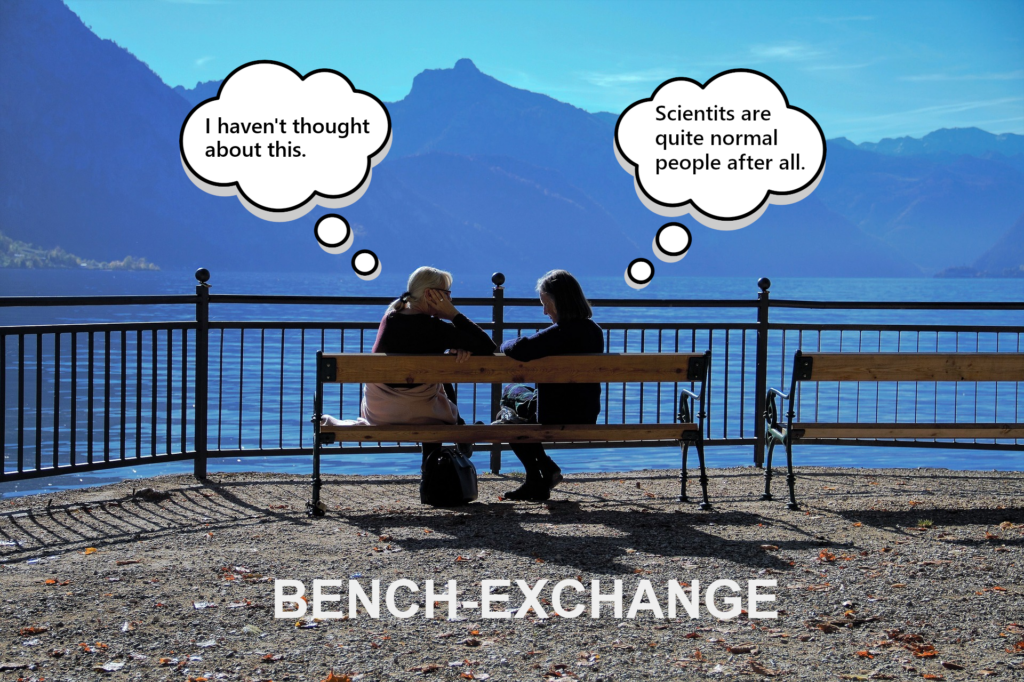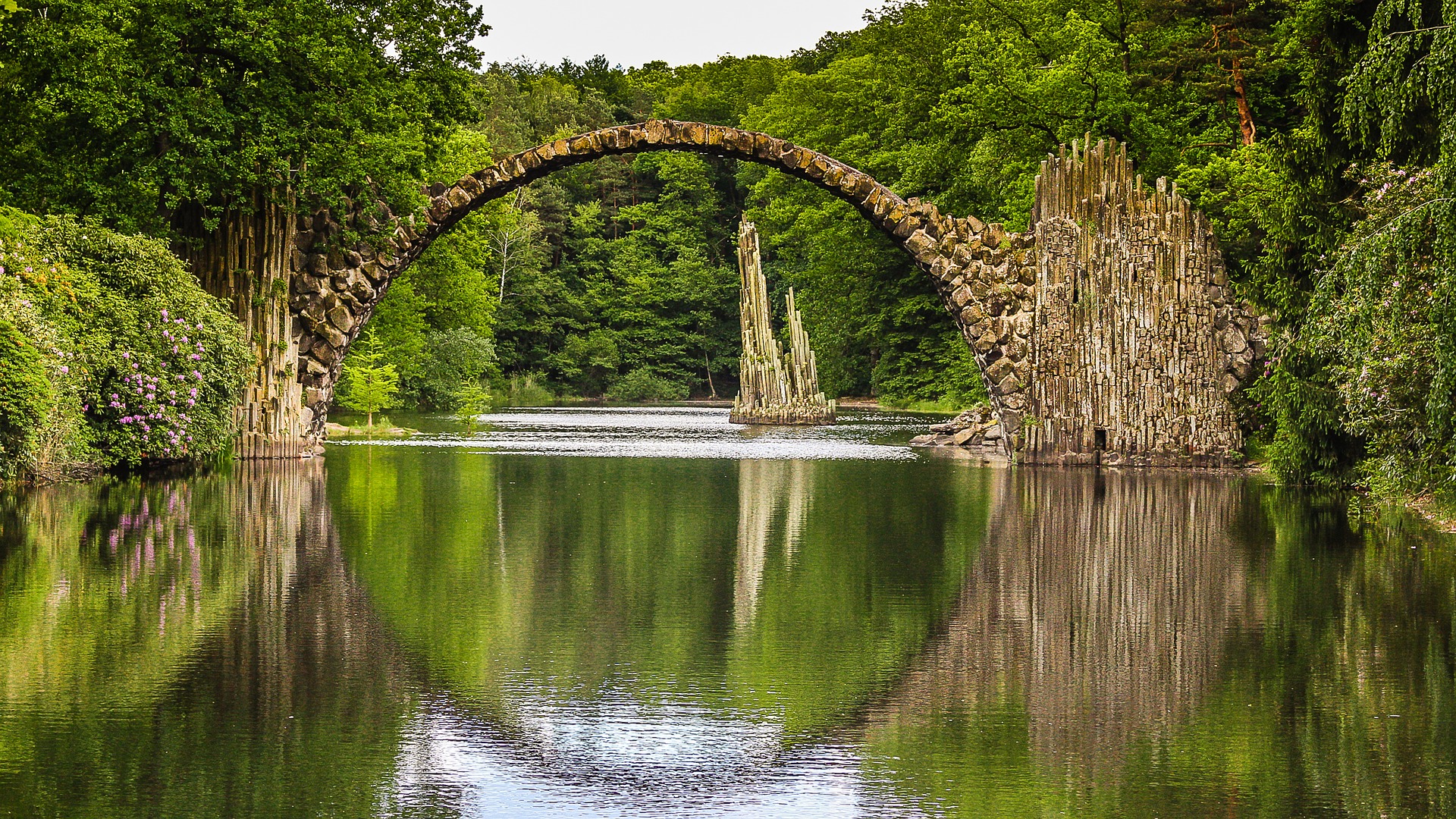Briefly analysed
Talking one to one with scientists on the bench. The science bench format makes this possible. What does it take? A scientist and a bench in the middle of the city. The wonderful thing about this public engagement format is that colleges and universities can easily organize it. In addition, scientists can reach people who don’t necessarily come to the open house of an university.
Exchange A conversation with scientists in the middle of the city? Possible on the science bench. A public engagement format with an uncomplicated organization where both scientists and the public benefit.
Do you still need an idea for a public engagement (pe) event for this year – without much effort? What about a chat on a bench? Last summer the Upper Bavarian University Association (Oberbayrischer Hochschulverband) tried out the science bench in different cities. The concept: scientists sit down on a bench for 90 minutes. Passers-by talk to them for as long as they like. The topics are predetermined. The university association chose climate change and artificial intelligence.
People like you and me
This is a great idea to reach people from the general population who tend not to go to institutes’ open days. The concept allows scientists to go to the places where the people are. They show: we are normal people who don’t lock ourselves up in our ivory towers. We want to listen and talk to you.
Direct exchange takes place with a talk on the bench. Interested passers-by get insights from universities. People learn in the dialogue, what scientific findings mean to them personally. For example, that the loss of biodiversity areas affects health. Also, scientists can respond directly to concerns. Researchers noticing the concerns improve their communication about their topic. Ultimately, the dialogue inspires both sides and provides new food for thoughts.

Topics that concern everyone
Not all topics are worth it for the science bench. Everyday ones and those that affect people are a good choice – like climate change or artificial intelligence. Press offices must formulate the announcement about the topic in understandable language. Everyone must be able to make sense of the terms used.
Scientists who participated in the campaign of the Upper Bavarian Association of Universities additionally recommend people who specifically address people on the street. A science bench that is located on a street with a lot of pedestrian traffic is also advantageous. Looking ahead, the public engaement format is sustainable if the city provides a bench that is always reserved for science talks. So that passersby know where they can interact with scientists.
It is desirable that science benches become established in a wide variety of cities.
Africa as a model
The science bench is an idea that can be easily implemented and from which both researchers and the population benefit. It is desirable that science benches establish themselves in a wide variety of cities, just like the “bench of the wise” in Africa. There, people in some villages exchange ideas with wise women and men on benches and seek advice. Katja Becker, President of the German Research Foundation, brought this idea to Germany after her stay abroad. The commitment fits in well with the Year of Science 2022 – Inquired! (Nachgefragt!) where questions from citizens are the focus. Hopefully, more colleges and universities will follow the idea and soon there will be a science bench in almost every city. What a great change that would be, to exchange news with a scientist between the weekly shopping or city stroll.
 Foto: Pixaby
Foto: Pixaby